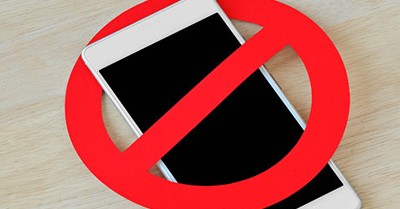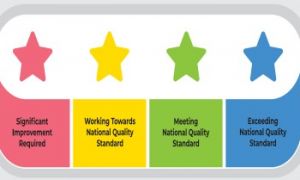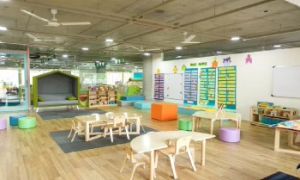As national reforms tighten mobile phone use in early childhood education and care (ECEC) settings across Australia, educators are asking, "Why not apply similar protections in primary and secondary schools?"
Effective September 2025, educators in early childhood settings must:
-
Store personal phones securely during contact hours.
-
Avoid all phone use while supervising or engaging with children.
-
Disable notifications on smartwatches with messaging or recording functions.
-
Use only service-approved devices for photography, with written parental consent.
These reforms aim to strengthen professional boundaries and reduce risks associated with unsupervised device use.
Educators and sector advocates have raised concerns about inconsistent safeguards across educational settings. As one commenter noted, “Has anyone asked why this is only the early childhood sector? Why not primary and high school also if the intent is to protect all children?”
Key arguments for extending the ban include:
- Universal child protection: Risks related to inappropriate device use, distraction, or misconduct are not limited to early childhood environments.
- Professional consistency: Uniform policies across sectors reinforce shared standards of care and accountability.
- Digital boundaries: In both classrooms and playgrounds, limiting personal device access helps maintain focus and reduces potential breaches of privacy or trust.
Some educators have flagged practical concerns, such as the use of phones to control hearing aids or respond to emergencies. These considerations highlight the need for:
- Clear exemptions for medical or accessibility needs
- Secure, service-managed alternatives for communication and documentation
- Consultation with school staff and families to tailor implementation
Do Any Schools In Australia Have Phone Bans For Teachers
Yes, some schools in Australia do restrict mobile phone use for teachers, though policies vary widely by state, sector, and individual school.
-
Early Childhood Sector: National reforms introduced in 2025 explicitly ban educators from using personal phones during contact hours. Phones must be stored securely, and smartwatches must have notifications disabled. These rules apply across all early childhood education and care (ECEC) settings.
-
Primary and Secondary Schools:
While most Australian states have implemented student phone bans, there is no universal policy banning phones for teachers. However:- Individual schools—especially in Catholic and independent sectors—may enforce internal staff codes of conduct that limit phone use during teaching hours.
- South Australia’s public schools, for example, include smartwatches and personal devices in their student bans, but teacher restrictions are left to school discretion.
- Queensland and Victoria have strong student bans, but teacher phone use is typically governed by professional standards and local school policies.
If extended to schools, mobile phone bans would require:
- Updated staff codes of conduct
- Infrastructure for secure device storage
- Training on digital safety and professional boundaries
As Australia moves toward stronger child safeguarding frameworks, extending mobile phone restrictions to schools may be a logical next step.
Further Reading
Q: Are We Allowed To Use Our Mobile Phones During Breaks?
A Nation Confronts the Crisis in Childcare







 As an Educator in Australia, your pay rate falls under the Children’s Services Award 2010. This award states the minimum amount that an employer can
As an Educator in Australia, your pay rate falls under the Children’s Services Award 2010. This award states the minimum amount that an employer can When working as a qualified Early Childhood Teacher (with a university degree) within a service, your rate of pay will come from the Educational Services
When working as a qualified Early Childhood Teacher (with a university degree) within a service, your rate of pay will come from the Educational Services When working as a Diploma Qualified Educator your pay rate is from the Children's Services Award 2010. This Award states your minimum rate of pay
When working as a Diploma Qualified Educator your pay rate is from the Children's Services Award 2010. This Award states your minimum rate of pay When working as a Cert 3 Qualified Educator, your pay rate is from the Children's Services Award 2010. This Award states your minimum rate of
When working as a Cert 3 Qualified Educator, your pay rate is from the Children's Services Award 2010. This Award states your minimum rate of Educational Leaders play a crucial role in their early childhood service by ensuring that the educational program aligns with best practices and supports the holistic
Educational Leaders play a crucial role in their early childhood service by ensuring that the educational program aligns with best practices and supports the holistic In early childhood education and care, ratios are more than a technicality—they are a frontline safeguard. Every child deserves responsive supervision, emotional connection, and developmental
In early childhood education and care, ratios are more than a technicality—they are a frontline safeguard. Every child deserves responsive supervision, emotional connection, and developmental With the new national child safety reforms kicking in on 1 September 2025, early childhood services like yours have a real opportunity to lead the
With the new national child safety reforms kicking in on 1 September 2025, early childhood services like yours have a real opportunity to lead the Here’s a comprehensive Mobile Phone and Smart Watch Policy tailored for early childhood education and care (ECEC) services in Australia, aligned with the latest 2025
Here’s a comprehensive Mobile Phone and Smart Watch Policy tailored for early childhood education and care (ECEC) services in Australia, aligned with the latest 2025 The Sea of Fish Challenge is a national initiative that invites children, educators, families, and communities to create and display fish artworks as a symbol
The Sea of Fish Challenge is a national initiative that invites children, educators, families, and communities to create and display fish artworks as a symbol Across the early childhood education and care sector, educators are sounding the alarm: current staffing ratios are insufficient to deliver safe, meaningful, and developmentally appropriate
Across the early childhood education and care sector, educators are sounding the alarm: current staffing ratios are insufficient to deliver safe, meaningful, and developmentally appropriate


